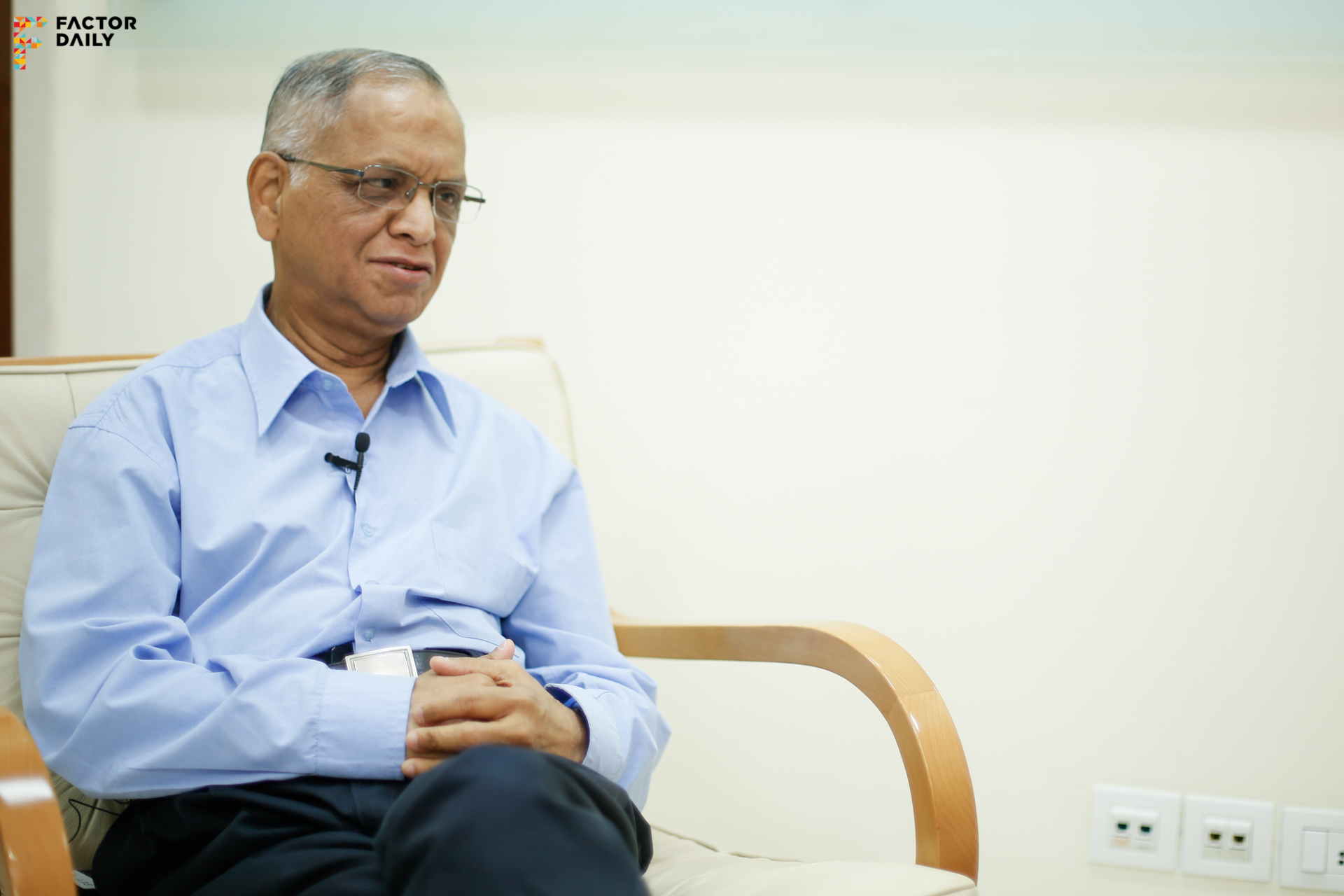Last week, the Infosys Science Foundation gave away its annual prize to six scientists. This year’s recipients include a star gazer, a humanitarian and a child prodigy. In an interview with FactorDaily, Infosys founder NR Narayana Murthy raised some red flags about the way India is going about science and nurturing its scientists. Here are excerpts from the interview.
Q. What will it take scientists to become entrepreneurs?
A. I think the problem today is not scientists becoming entrepreneurs, it is how do we create an environment where our scientists are free to do world-class research with full support from the government and the society.
We have been failing our scientists in providing them adequate support and encouragement, and in creating an environment that can help them succeed
How do we provide proper infrastructure to them; how do we support them in traveling abroad so they can meet their counterparts in other countries; how do we help them host their counterparts from different countries; and how do we make sure that they can attract loads of high quality students to join their research teams. These are the issues.
Q. Has India been failing its scientists?
A. That’s exactly what I’m saying; we have been failing our scientists in providing them adequate support and encouragement, and in creating an environment that can help them succeed. That is where we have failed, absolutely.
Q. Do you see any hope we might be able to change this?
A. We have initiatives like the Infosys Science Foundation that recognise outstanding researchers, showcasing role models. The government is now providing better funding for scientists, which helps them interact easily with their counterparts in India and abroad. I think we are making slow progress in these areas, and I believe that at some stage, sooner rather than later, we will accelerate these efforts. And hopefully nick these problems.
I think we are making slow progress in these areas, and I believe that at some stage, we will accelerate these efforts
Q. Should the government alone be solving these problems?
A. By and large, science is about unraveling nature; it is about addressing fundamental issues. Therefore, in almost all countries in the world, science is primarily funded by the government, by tax money, and to a smaller extent by the private sector. So, even in India, if we want science to take off, then it has to be funded primarily by taxpayers’ money.

Q. Are there lessons to take from what people like Raghunath Mashelkar tried to achieve with the network of labs?
A. There’s no doubt at all that my friend Mashelkar (Raghunath) is an excellent example, even at a global scale, of being a leader of science establishment in the country.
What we need to do it think about how do we institutionalise all the wonderful things that people like Mashelkar have done.
Q. How do we get the next Mashelkar?
A. (We will get people like Mashelkar) Not just in the National Chemical Laboratories, but in all the labs at all the institutes of learning. We need to make sure that these Mashelkars are not hampered by the red tapism and bureaucracy in the country.
We need to make sure that these Mashelkars are not hampered by the red tapism and bureaucracy in the country
The problem is not lack of people, but the lack of an environment, lack of freedom, lack of interaction with scientific counterparts outside. If we can take each of these problems and find solutions, then I believe that we can produce the maximum number of scientists in the world.
If you look at China, they seem far ahead. What can we learn from them? Is it a problem of ambition or capabilities?
We have problems at both the levels.
Firstly, there’s a problem at the leadership level in our country. Barring a few exceptions like our Prime Minister and a few others, by and large our political leaders are not conversant with the power of science, engineering and research.
The second thing is that we don’t have a culture of letting experts handle specialised matters like science. We try to dabble in areas we don’t know anything about. That is the political culture of our country. That’s the bureaucratic culture.
We are a country with very low self-confidence. We don’t want to learn anything from anyone outside
The third thing is that we are a country with very low self-confidence. We don’t want to learn anything from anyone outside. I don’t know if you remember when Dr Montek Singh Ahluwalia wanted to invite some NRIs as consultants to an advisory council, the communists said, “How can you call outsiders?”
Unless we are open-minded to learning from people who have done better than us, there’s no hope for us to become better.
At the execution level, India does not have, with rare exceptions, a culture of excellence. We lack a culture of good execution, of timely execution and global benchmarking.
At the execution level, India does not have, with rare exceptions, a culture of excellence
We do not have a culture of excellence.
China has all of these.
If we all sit together and decide to tackle these problems, I personally believe we can.
There are several examples from history — the freedom struggle led by Mahatma Gandhi is an example. We have sent a vehicle to the moon, and our scientists have produced evidence that there could be water on the moon.
Today, for example, we send satellites to space regularly. I think if we are determined to do something, if our political leaders help the leaders of important missions, we will succeed.
Subscribe to FactorDaily
Our daily brief keeps thousands of readers ahead of the curve. More signals, less noise.








